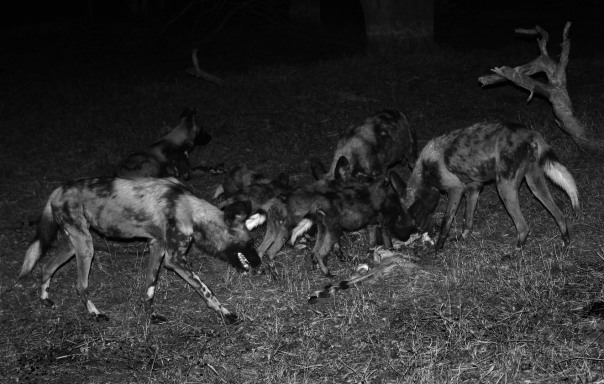Blog Archives
Safari “hangover”: returning from an African Eden
We are back from another amazing edition of the “Drawing the Big Cats Safari” to Botswana. In fact we have been back for more than a week, and yet the process of adapting once more to everyday life feels a bit like a diver’s decompression.
The safari experience has something primeval about it, as if we were returning to the natural state of humankind in its childhood. For days on end our senses are continously soaked with the sights, sounds and smells of nature, and our brain is suddenly doing what it was designed to do -in fact it feels happy and at home, like a puppy allowed to run in the park, or like a dolphin splashing in the waves. Each night you collapse in your tent’s bed with your mind full of images to process, and yet utterly at peace.
Such a routine is in stark contrast with our daily life back in the “civilization”, and we have to come to terms with the implications, because a trip of this sort is much more than a vacation. We have fed our mind with the kind of high-quality food that will keep our creativity fuelled for months and years to come. But we know we are transiting between contrasting worlds. Each time I experience the pristine wilderness of Africa I am reminded that countries like Botswana are preserving such natural treasures at a cost. A lot of effort and sacrifice are neccesary if our shared heritage has to endure, and ecotourism is one way we can all contribute to make it sustainable in the long term. I never tire of repeating it, a safari to the African wilderness is an experience that will improve your life. Stop just dreaming about it and start planning for it. You will not repent -and you will return!
This majestic lion from Savuti pauses for a moment in front of the marsh. In the background are the hills where we first met this impressive individual a year ago. Not the only feline re-encounter we had!

“Food on the Ground, Food for All” Surprising Behavior of African Predators
Most of the time, the African predators behave according to the biologists’ expectations. For instance, leopards haul their kills up trees in order to keep them safe from competing predators, and African wild dogs eat exclusively from their own kills and don´t bother to scavenge form other predators. After all, wild dogs are among the most efficient hunters in the African bush.
But reality has a way to challenge our assumptions, and during our safari in Botswana last year we witnessed a situation where hardly anything went according to the textbooks’ predictions.
One afternoon we found again the mother leopard whose interaction with her cub had so much endeared us. She had caught an impala ewe and the two of them had a Pantagruelian feast. But the cat was unquiet for some reason that only became evident long afterwards. She had the carcass at the foot of a tree, and at one point she climbed to rest, but to our surprise she did not carry the prey.
When darkness came we finally realized what was making her nervous: the pack of wild dogs that we had been observing for the previous days appeared out of the night and claimed the impala for themselves. With her keen senses the leopard had been aware of their presence for quite a while, long before we saw them, and that made it even more surprising that she did not haul the carcass. Was her belly already too heavy to climb with the extra weight of the impala in her jaws?
Here we see the mother leopard as she helplessly watched the wild dogs feed on her kill (Photo by Miguel Antón)

But the most surprising part of this story for us was the fact that the wild dogs would steal a kill from a leopard. The dogs appeared at the scene in an orderly manner, first an adult scout, then another, and only when they felt sure that the coast was clear did the pups arrive to the kill site.
The wild dogs consumed the carcass with impressive speed (Photo by Miguel Antón)
Many factors may have influenced the unusual outcome of this story. It is possible that the failure of the wild dog pack to secure a kill the previous day made them less selective, especially since they had a lot of young mouths to feed. May be that, being a large pack, they felt assured of their superiority. Also maybe they felt that the mother leopard would not take many risks in a battle to defend her kill when she had a vulnerable cub to take care of.
At any rate, it is clear that the real potential and flexibility of the behavior of wild predators can only be discovered with lots of hours of observation in undisturbed environments. Without that luxury, we are bound to make oversimplified theories about what the animals can do and will do in a given situation. But for the impressionable brain of the leopard cub who saw the whole thing from her branch, just out of reach of the dog’s jaws, there was an important lesson to learn for the future, as summarized in a short phrase by our safari guide: “Food on the ground, food for all”.
You can watch the story in video here:
